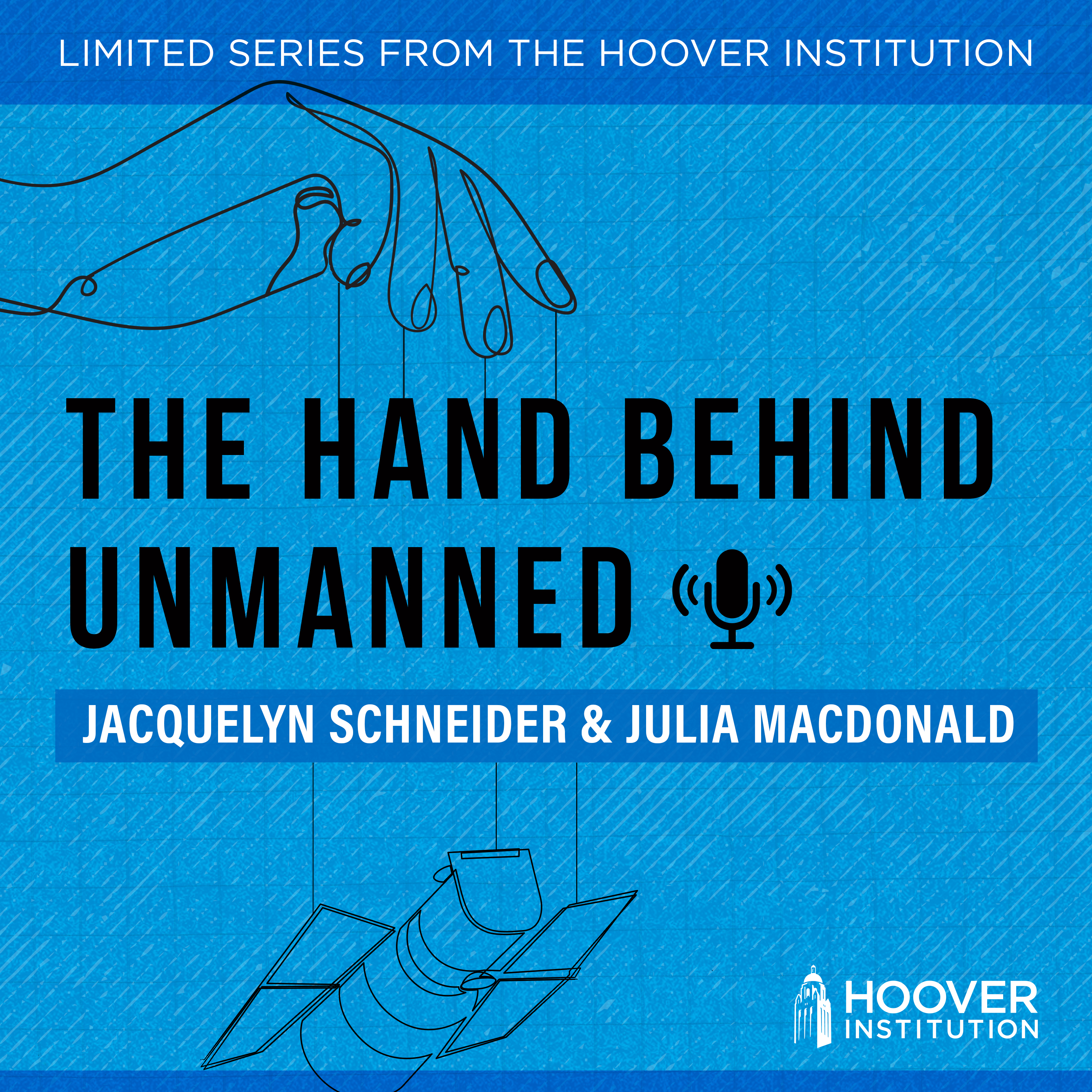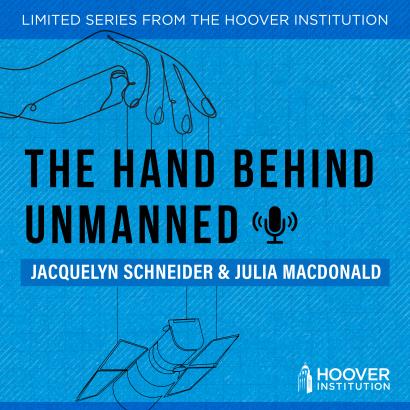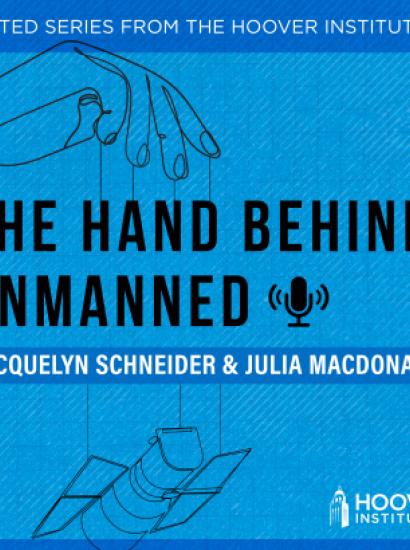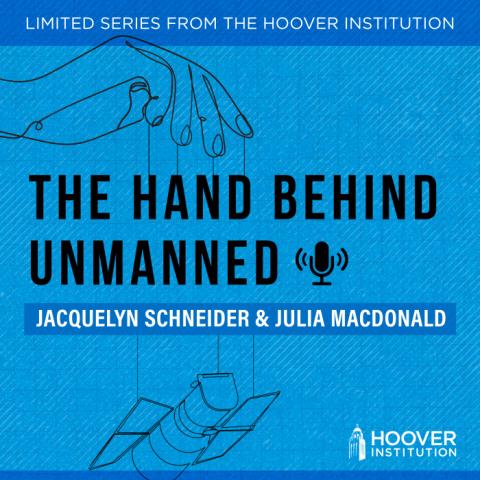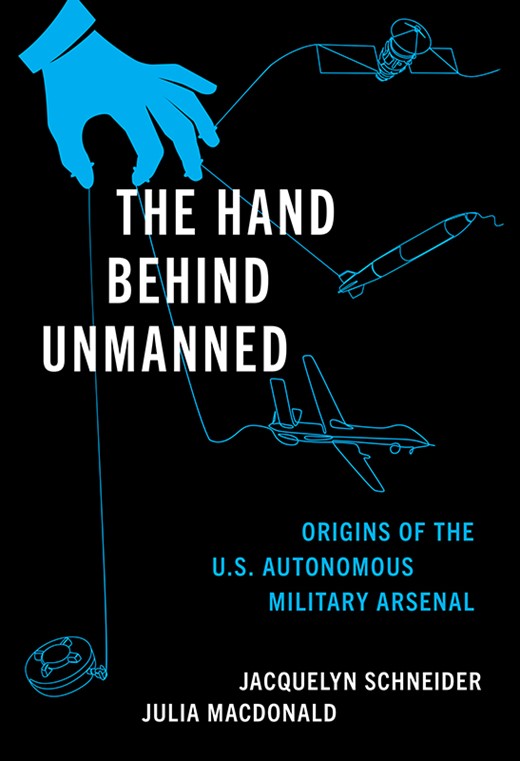Hoover Institution (Stanford, CA) — The Hoover Institution is proud to announce a new limited podcast series, The Hand Behind Unmanned, which will explore the rise and use of autonomous systems in the US military.
This timely podcast is an extension of the profound insights presented in the recently published book The Hand Behind Unmanned: Origins of the US Autonomous Military Arsenal (Oxford University Press).
Coauthored by Jacquelyn Schneider, Hargrove Fellow and director of Hoover’s Wargaming and Crisis Simulation Initiative, and Julia Macdonald, research professor at the University of Denver’s Korbel School of International Studies, the book details how critical ideas, individuals, and institutions have shaped the US military’s approach to unmanned and autonomous technologies over the past half century.
“The podcast tells the story of a centuries-old American quest to use technology to substitute for humans on the battlefield; it is a story of technology, but the main characters are the people that made those technologies a reality,” Schneider said.
The Hand Behind Unmanned podcast offers in-depth, expert interviews on this pursuit of unmanned technology, from nineteenth-century torpedoes to first-person-view drones over the skies of Ukraine. Voices include former Secretary of Defense Leon Panetta, former Secretary of the Air Force Frank Kendall, and former head of the Defense Innovation Unit Mike Brown.
The first episode went live Thursday, featuring Paul Scharre of the Center for a New American Security, Kate Epstein of Rutgers University–Camden, Michael Horowitz of the University of Pennsylvania, and Benjamin Jensen of the Futures Lab at the Center for Strategic and International Studies. The episode begins at the birth of America and a new military’s use of floating kegs down the Delaware River to harass a much larger British Navy.
During the Civil War, both Union and Confederate forces experimented with land and naval mines, as well as tethered torpedoes. Then by the start of World War I came the development of aircraft and radio communication, which ushered in a new period of autonomous weapons development
The episodes follow a historical timeline, each one detailing the interaction of historical critical junctures, domestic politics, and Pentagon bureaucracies as unmanned technologies advanced, stuttered, stagnated, and shaped the crises and wars in which they debuted. Throughout, the podcast reveals how ideas shape technologies and demonstrates how defense influencers took ideas to budget lines and ultimately to technologies during war, continuing from the World Wars I and II to the Cold War and Sputnik, Vietnam, the fall of the USSR, and finally to our current century, from 9/11 to today. The series culminates in describing how the autonomous weapons of today are driving war in Ukraine and the Middle East and defining a potential future conflict with China.
A key theme in both the book and podcast is the significant impact of economic costs and sustainability on the deployment and scaling of autonomous systems. Schneider and Macdonald emphasize the concern of investing in technologies that may be prohibitively expensive and not easily replicated in large quantities, stressing the importance of sustainability in any potential conflict.
They leave listeners with the opportunity to arbitrate their own debates about the future of the US arsenal—and whether it will be one defined by range, precision, and the mitigation of human risk or one that focuses on scale and the ability to use technology to survive wars of attrition.
The Hand Behind Unmanned podcast also underscores the complicated relationship between the defense industry and the Department of Defense and the unique moment today when new companies like Anduril are reshaping the American defense industrial base. The series will contrast historical and contemporary examples to illustrate the novelty of the current moment between the defense industry and the American military.
As technology continues to evolve, understanding the interplay between human influence and autonomous systems becomes critically important. Schneider, Macdonald, and their guests discuss how the strategic decisions of past decades, shaped by key individuals and institutions, continue to influence future military capabilities and procurement strategies. And they leave the listeners to hear from who will be the new influencers and the new ideas that will shape the next generation of unmanned technologies.
Listeners are encouraged to subscribe to stay informed on episodes that will tackle some of the most pressing issues concerning the future of unmanned military systems.
For congressional staffers, defense lobbyists, policy experts, and the informed public, this podcast promises to be an invaluable resource. The discussions and insights provided are poised to inform and influence the ongoing debates regarding national security, defense innovation, and military strategy in the contemporary geopolitical landscape.
Watch or listen to the first episode here or wherever you get your podcasts.
For coverage opportunities, contact Jeffrey Marschner, 202-760-3187, jmarsch@stanford.edu.







